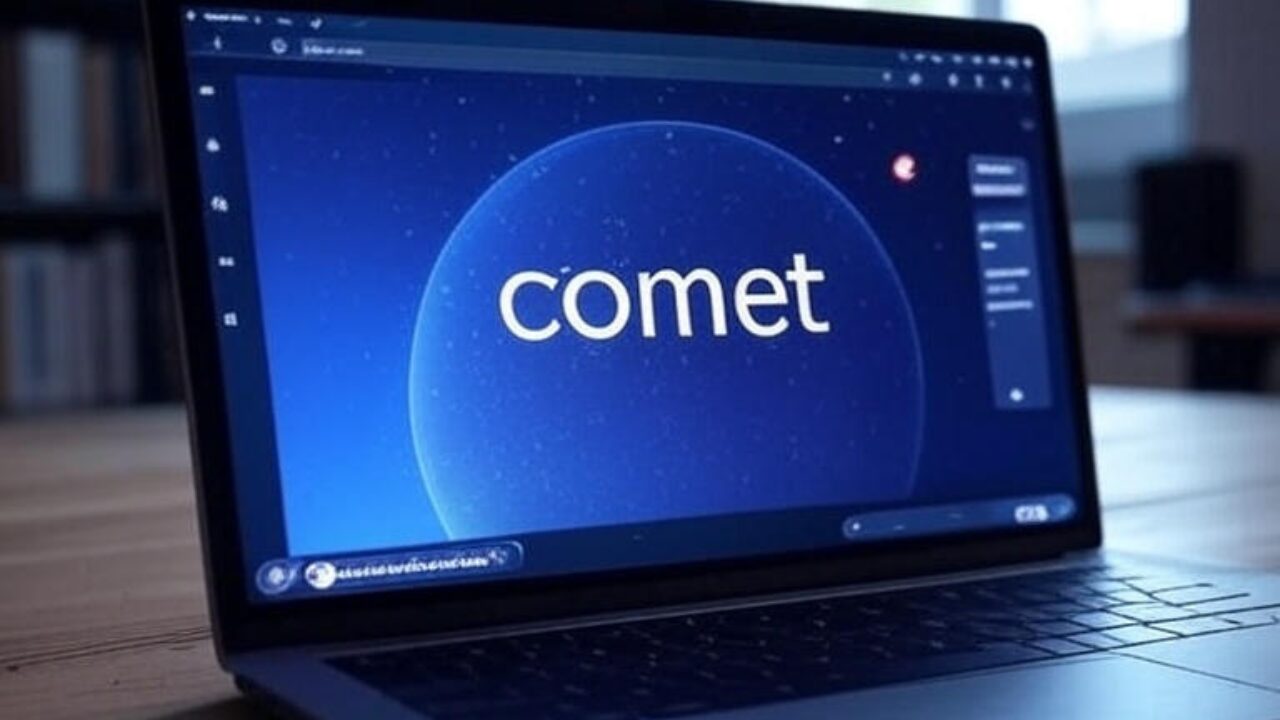Comet Browser: What Perplexity’s AI-Powered Browsing Is About
Hey there, fellow tech enthusiasts! If you’re anything like me, you’re always on the lookout for tools that make browsing the web feel less like a chore and more like a seamless adventure. Well, buckle up because I’ve been diving deep into Comet, the new AI browser from Perplexity.ai, and it’s got me excited about the future of how we interact with the internet. Launched just last month in July 2025, Comet isn’t your average browser—it’s like having a super-smart sidekick right in your tabs. Let me break it all down for you, from what it is to how it works, the good, the bad, and everything in between. I’ll keep it real and conversational, just like we’re chatting over coffee.
What Exactly Is Comet?
Picture this: You’re tired of juggling multiple tabs, switching between search engines, and pasting stuff into ChatGPT for explanations. Enter Comet, Perplexity’s answer to that chaos. It’s an AI-native web browser built on Chromium—the same open-source foundation that powers Chrome—which means it’s stable, secure, and plays nice with all your favorite Chrome extensions. But here’s where it stands out: Instead of relying on traditional search like Google, Comet weaves Perplexity’s powerful AI “answer engine” into every corner of your browsing experience. Think of it as a personal assistant that not only fetches info but thinks alongside you, turning random curiosities into instant insights.
Perplexity, for those who might not know, is that AI search company that’s been making waves with its ability to summarize web content and answer questions with cited sources. Comet takes that tech and embeds it directly into a browser, aiming to rival giants like Chrome by making AI the star of the show. It’s currently available only to Perplexity Max subscribers (their premium tier) or via an early access waitlist, so it’s still in that exclusive phase where demand is high and spots are limited. No word on exact pricing since that’s handled through Perplexity’s subscriptions, but if you’re already a Max user, you’re in luck.
The Cool Features That Make Comet Shine
Comet isn’t just about browsing; it’s about supercharging it with AI smarts. Here’s a rundown of what sets it apart:
- AI-Powered Address Bar Magic: Type a question into the omnibar (that spot where you usually put URLs), and boom—Comet pulls up a summary with links to sources, all powered by Perplexity’s engine. No more sifting through endless search results.
- Contextual Superpowers: Highlight some text on a page, right-click, and let the AI summarize or dive deeper. Watching a YouTube video? Comet can recap it for you or answer follow-ups without you lifting a finger. It even scans your open tabs to summarize what’s going on across them or compare products you’re shopping for.
- Agentic Awesomeness: This is where it gets futuristic. Comet can “take control” of your browser (with your permission, of course) to handle tasks autonomously. Need to add items to an Amazon cart and check out? Book a restaurant reservation? Send an email that sounds just like you? It can do that, integrating with services like Gmail or Google Calendar. I love how it handles niche stuff, like analyzing a card game deck and automatically adding cards to a shopping cart on a site like TCGplayer.
- Sidebar Assistant: There’s a handy chat interface on the side for voice or text queries. It can describe images, translate languages on the fly, close unused tabs, post to social media, or even unsubscribe from pesky emails.
It’s all designed to boost your focus and streamline workflows, turning the browser into a thinking partner rather than just a window to the web.
How Does It Actually Work in Real Life?
From what I’ve gathered, using Comet feels like upgrading from a bicycle to an electric scooter—faster and more effortless, but with a few bumps along the way. The AI understands context from what’s on your screen, so you don’t have to explain everything from scratch. For example, if you’re reading about a political candidate, it can pull up their policies or voting record without you rephrasing the query. Agentic tasks start with prompts like “take control of my browser,” and then it navigates sites, fills forms, and gets stuff done. But it’s not perfect—sometimes it stumbles on complex actions, like entering dummy info for reservations or failing to find the right hotel deals.
In terms of system requirements, since it’s Chromium-based, it should run on most modern devices—Windows, Mac, maybe even Linux down the line—but specifics aren’t super detailed yet. It’s more about having a Perplexity account to unlock the full potential.
The Pros and Cons: Keeping It Balanced
Let’s be honest, no tool is flawless, and Comet is still young. On the plus side, it could seriously cut down on tab overload and make research a breeze. When it nails a task, like recommending the perfect mechanical keyboard switches based on your vibe (shoutout to those “thocky” Gateron Oil Kings), it feels magical. It’s a step toward that “agentic” future where AI handles the grunt work, leaving you to think big.
But there are downsides. The AI’s search can lack recency, so it’s not great for breaking news or the latest articles—Google still edges it out there. Agentic features are hit-or-miss; some tasks take longer than doing them manually, and failures can frustrate you. Plus, as one reviewer put it, it’s like rolling the dice on reliability. If you’re into privacy, you’ll want to read on…
The Bigger Picture and What’s Next
Comet isn’t alone in this space—it’s part of a wave of agentic browsers like The Browser Company’s Dia or Opera Neon, and even OpenAI is rumored to be cooking up something similar. It could shake up how we think about SEO and ads, pushing toward “zero-click” experiences where you get answers without leaving the page. Challenging Chrome’s 65%+ market share won’t be easy, but if Perplexity keeps iterating, Comet might just become the go-to for AI-savvy users.
Currently, Comet is rolling out on a limited, invite-only basis, with early access granted to Perplexity Max subscribers.
Looking ahead, expect updates to iron out those kinks, maybe broader availability beyond Max subscribers, and more integrations. Perplexity’s CEO has hinted at high demand, so they’re probably fast-tracking improvements.
Wrapping It Up
All in all, Comet has me optimistic about browsing’s evolution. It’s not ready to replace Chrome for everyone yet, but if you love AI and want a browser that anticipates your needs, it’s worth jumping on the waitlist. Have you tried it? Drop your thoughts in the comments—I’d love to hear if it’s living up to the hype for you. Until next time, happy browsing!




This is quite interesting Danwil. I still can’t get used to AI. I think I may be showing my age, LOL! But it will be interesting to see where Comet goes. Thanks for sharing.
Interesting perspective! My Favorite is Ecosia …. planting trees and climate action.